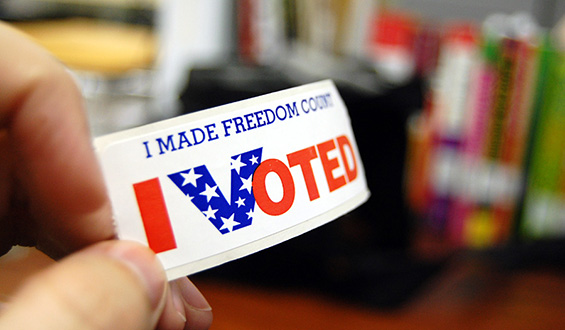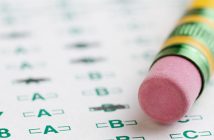 (Photo: Kelley Minars, Creative Commons)
(Photo: Kelley Minars, Creative Commons)
Tuesday’s primary was the first time that a controversial voter identification law in North Carolina was used, and Kira Lerner of Think Progress says registered voters are now feeling the consequences of “voter suppression” legislation.
There are, in North Carolina, 218,000, or approximately 5%, of voters who are registered but do not have a form of government-approved ID. Now, under the provisions of a state law, such an ID is required to cast a ballot.
The problems that could result from this measure became evident when early voting took place in the state. During the past ten days of the early voting period, many college students were not permitted to vote.
Across the state, 864 voters were made to cast provisional ballots because they did not have legal forms of ID. Four out of five of the counties with large numbers of provisional ballots because of voters’ unacceptable IDs were areas where college campuses were located.
Bob Hall, the executive director of Democracy North Carolina, said that not only was there “the maze of filling out forms,” but also the prospect that the votes could be challenged or not counted at all.
“Because this is so much affecting young people, we’re teaching them the wrong lesson about democracy and about voting,” Hall said. “We’re really pushing them away from being involved in the political process, and that’s a bad message, but it is the message that’s coming across.”
The current North Carolina state law declares that people who registered to vote within 90 days of Election Day may use an ID from out of state to vote, which is relevant to students who may be attending a school that is not in their home state. However, for those who registered to vote over 90 days before the actual election, and do not have a North Carolina identification, a provisional ballot must be used.
One student attending the University of North Carolina said she would avoid the hassles involved in voting without an ID in the state by registering in her home state and voting through an absentee ballot.
The new voter ID laws are affecting Democrats more than Republicans. The turnout of GOP voters has risen to 62% from the percentage of Republican voters in 2008, but Democratic voter numbers have decreased by 29% across all primary and caucus states that have voted up until now. In every state but two, smaller numbers of Democrats turned out to cast their ballots in 2016 compared to 2008.
Recent University of California, San Diego research found that after states created tightened voter ID laws, Democratic election participation dropped by 8.8%, and Republican turnout fell off only 3.6%. The change was most visible among minorities, according to Janie Velencia and Alissa Scheller, reporting for the Huffington Post.
Critics of the voter ID laws say the legislation affects minorities, students, and low-income populations, which also happen to be the demographics that are more likely to vote Democratic than Republican.
Those who back the idea say it is in place to prevent voter fraud. But research shows there is little evidence that voter fraud exists at substantial levels, reports The Christian Science Monitor’s Cathleen Chen.
As of this month, 36 states have adopted the policy.




